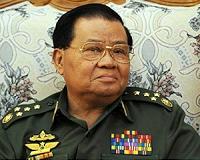| . |  |
. |
Yokohama, Japan (AFP) Nov 12, 2010 Luo Yimei was born and bred in Japan but has never relinquished her Chinese nationality -- a decision she traces back to the day she was taught about Japan's wartime aggression in China. Now 62, the restaurant manager in Yokohama's Chinatown -- the largest in Japan -- has committed the event to history and like many in this colourful part of the city, rarely brings up politics in her dealings with friends. But a territorial row between China and Japan has brought politics back to the surface, especially as heads of government prepare to meet at this weekends's Asia Pacific Economic Cooperation (APEC) summit in Yokohama. "There was a time when I hated Japan and I didn't want to get the Japanese nationality," she said, recalling her studies at a school in Yokohama for overseas Chinese as she sipped tea in her restaurant, tucked away in an alley. "I did ask myself why I lived in Japan. But as I grew up, I thought this is history, you have to separate the government from the people," added Luo, a fourth generation Chinese in Japan. Luo's initial reaction is one shared by many people in China, where memories of Japan's brutal invasion and occupation before and during World War II still linger, spilling over into present day relations between the two countries. Now, a territorial row has once again raised tensions between East Asia's big powers after Tokyo arrested a Chinese fishing boat captain in disputed waters more than two months ago, attracting Beijing's wrath. He was eventually released but the row has simmered on, sparking demonstrations in China and Japan. Japanese nationalists are planning another anti-China protest on Saturday in Yokohama, when Chinese President Hu Jintao will be in town, and may meet with Japan's Prime Minister Naoto Kan to try to ease the current feud. But in this district of Yokohama, where street vendors sell dumplings and other Chinese delicacies, palm-readers predict the future and Japanese stroll and window-shop, most people, just like Luo, steer clear of sensitive issues. "I have a lot of Japanese friends, and we just don't talk about the political situation. People are not comfortable talking about it because of history," said Liu Chong, a waiter from eastern China. "People who come here to eat aren't those who hate the Chinese anyway," the 29-year-old added, sporting a badge that said: "We support APEC. Welcome to Yokohama." Taken with Japanese students he met in his native Qingdao city in China, Liu decided to come study in Japan and learn the language. He has been in Yokohama for seven years and has no plans to return home. "I've been here so long that I'm used to life here. And anyway in China, it's quite hard to find a job, as there are so many university graduates and those who have studied overseas no longer have an advantage." And for Lin Lifang, a 53-year-old shop worker who came to Japan 20 years ago from southern China, moving back is not an option. "My two children have the Japanese nationality, and so do I. I'm used to it here." Luo, though, frowns as she thinks of the current tensions between China and Japan. "In my heart I'm Chinese but it makes me so sad as I can understand both sides," she said in Mandarin, before switching to fluent Japanese as she picked up the phone. "It's hard to resolve, but we would really like it to get better between the two countries."
Share This Article With Planet Earth
Related Links Democracy in the 21st century at TerraDaily.com
 China praises much-criticised Myanmar election
China praises much-criticised Myanmar electionBeijing (AFP) Nov 9, 2010 China's one-party government applauded the military junta in ally Myanmar on Tuesday for holding a weekend election that has been roundly criticised by the United States and others as a sham. "This is a critical step for Myanmar in implementing the seven-step road map in the transition to an elected government, and thus is welcome," foreign ministry spokesman Hong Lei told reporters. He ... read more |
|
| The content herein, unless otherwise known to be public domain, are Copyright 1995-2010 - SpaceDaily. AFP and UPI Wire Stories are copyright Agence France-Presse and United Press International. ESA Portal Reports are copyright European Space Agency. All NASA sourced material is public domain. Additional copyrights may apply in whole or part to other bona fide parties. Advertising does not imply endorsement,agreement or approval of any opinions, statements or information provided by SpaceDaily on any Web page published or hosted by SpaceDaily. Privacy Statement |